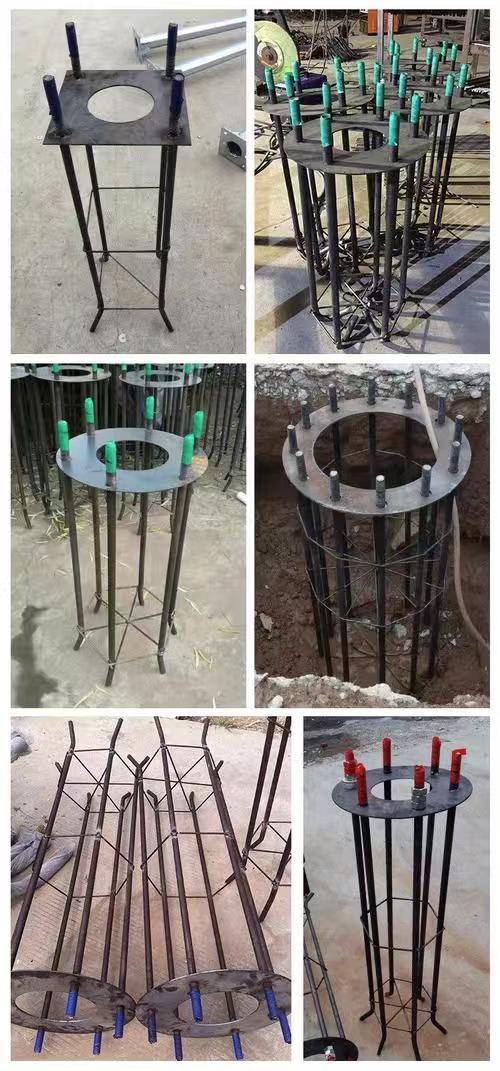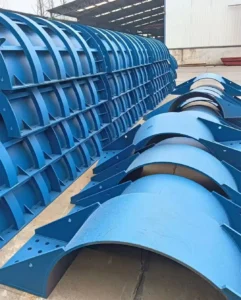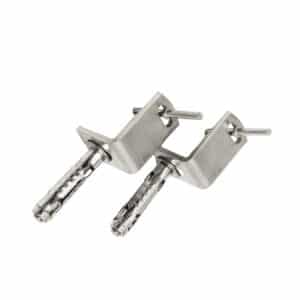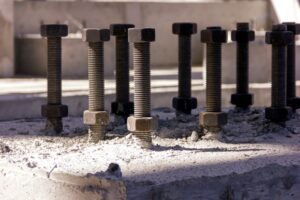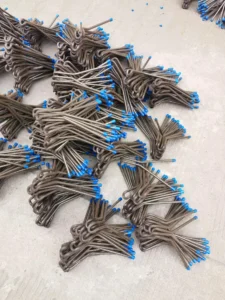At construction projects, you may have noticed steel plates or reinforcing bars that seem to “disappear” into the concrete, these plates are called embedded plates.They might look ordinary, just a few steel plates welded with rebar, but those who truly understand construction know that embedded parts are far from simple.They are like the veins and tendons of a building, quietly supporting the entire structure’s safety and stability.
1. What Are Embedded Parts?
As the name suggests, embedded plats are metal components pre-installed before concrete is poured. Their role is to provide connection, anchorage, and load bearing support for steel structures, curtain walls, or equipment foundations in subsequent construction.The length, diameter, and hook angle of the rebar determine anchoring strength.The thickness and size of the steel plate affect welding strength and pull-out resistance. Without properly designed embedded parts, the steel beams and concrete supports would be like loose sand,unable to form a stable whole.
2. Embedded Plates vs. Fundation Bolts — What’s the Difference?
Many people confuse embedded parts with fundation bolts, but actually, fundation bolts are just one type of embedded part. Foundation bolts are mainly used to secure equipment or steel columns to the foundation, transferring vertical and horizontal loads through concrete anchorage. However,embedded parts cover a much wider range.
They include Embedded steel plates for curtain walls, railings, or equipment supports; Welded or combined embedded parts for connecting complex structures; Large foundation cages (rebar assemblies) used in heavy duty bases such as bridges or wind turbine foundations.
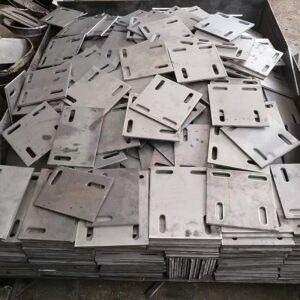 |
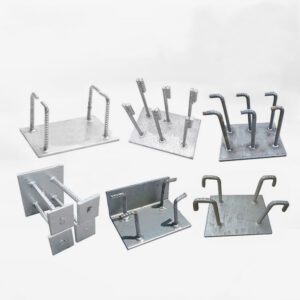 |
 |
| embedded plates | Welded or combined embedded parts | Large foundation cages |
3. How to Choose the Right Material
The choice of material depends on the environment and load requirements. Common options include Q235 carbon steel which is the most widely used in general construction, offering excellent cost performance;Q345 highstrength steel which higher tensile strength, suitable for heavy load connections;Stainless steel (304 / 316) which is suitable for coastal, humid, or chemical environments due to excellent corrosion resistance. Hot dip galvanized carbon steel which is the mainstream choice for curtain walls and external connectors, balancing cost and corrosion protection. Different environments require different approaches.For indoor or standard structural use, Q235 is sufficient. But for coastal or outdoor steel structures, hot dip galvanized or stainless steel is highly recommended.Otherwise, corrosion problems will show up in just a few years.
| Material | Features | Applicable Environment |
|---|---|---|
| Q235 Carbon Steel | Low cost, easy to process, excellent weldability | General construction, indoor projects |
| Q345 High-Strength Steel | High tensile strength, greater load capacity | Large structures, heavy duty connection areas |
| Stainless Steel (304/316) | Corrosion-resistant, moisture and heat resistant, non-rusting | Coastal areas, humid environments, chemical plants, subway projects |
| Hot-Dip Galvanized Carbon Steel | Excellent overall cost performance, long-lasting rust protection | Exterior walls, curtain walls, steel structures, bridge projects |
4. Corrosion Resistance and Zinc Coating Thickness
Corrosion protection is one of the most important quality aspects of embedded parts. At Fastenmetal, we use hot dip galvanizing, achieving a zinc coating thickness of over 80μm, significantly extending the product’s service life.With this protection, our embedded plates can effectively resist rust for more than 10 years in outdoor environments. For projects with higher anti-corrosion requirements,such as coastal ports,we can also produce stainless steel versions or apply special protective coatings according to customer drawings.
5. Custom Embedded Parts from the Manufacturer
At Fastenmetal, we understand that every project is unique.From the simplest embedded steel plates and welded rebar plates, to large scale foundation cages weighing several tons,as long as you provide the drawings, we can manufacture precisely to your specifications.Our experienced welders handle complex structural welding with skill, while CNC equipment ensures accurate hole positioning.
Before delivery, each batch of embedded parts undergoes dimensional checks, weld inspections, and zinc coating thickness testing, ensuring reliable quality you can install with confidence.
Our Embedded Parts Cases:
